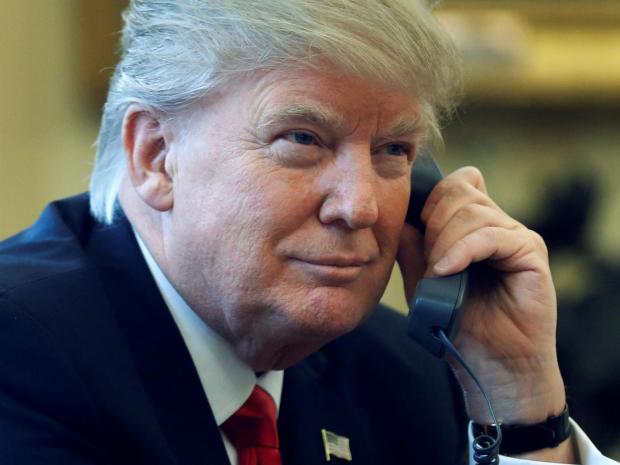Donald Trump says US-Russia relations are at an 'all-time and very dangerous low'

Donald Trump has said the US's relations with Russia are at an "all-time and very dangerous low" after Congress pushed through a law ordering new sanctions against Moscow.
On Wednesday, the US President begrudgingly put his signature to legislation which was designed to punish Russia for its apparent interference in the 2016 election, as well as its role in the fighting in eastern Ukraine.
"I built a truly great company worth many billions of dollars," the President said in a defiant statement announcing he had signed the law. "That is a big part of the reason I was elected. As President, I can make far better deals with foreign countries than Congress."
The Russian Prime Minister, Dmitry Medvedev, said the law amounted to a "full-scale trade war", and the Kremlin warned it would have to respond. "Nobody should doubt that Russia will protect and defend its interests," said Vladimir Putin's spokesman, Dmitry Peskov.
In a tweet, Mr Trump said the state of US-Russia relations was the fault of American lawmakers, who voted overwhelmingly for the sanctions legislation. "You can thank Congress, the same people that can't even give us [health]care!" he said.
That messaging is consistent with past statements from the Trump administration, which has struggled to find common ground with Moscow over the past six months. Tensions grew after Mr Trump ordered his military to launch missile strikes on Syrian targets in April, saying that the Syrian government had crossed a line in using chemical weapons as a part of its arsenal in the devastating civil war there.
But Mr Trump's hand was forced on the sanctions bill, which also levied restrictions on Iran and North Korea. The bill was passed overwhelmingly in Congress with bipartisan support, and the same level of support would have easily been able to overturn a presidential veto should he have chosen to take that route.
Join our commenting forum
Join thought-provoking conversations, follow other Independent readers and see their replies
Comments
Bookmark popover
Removed from bookmarks